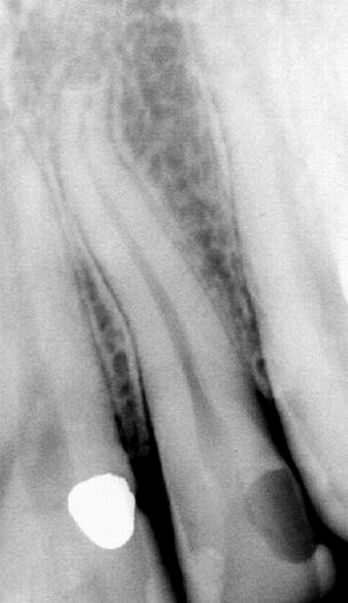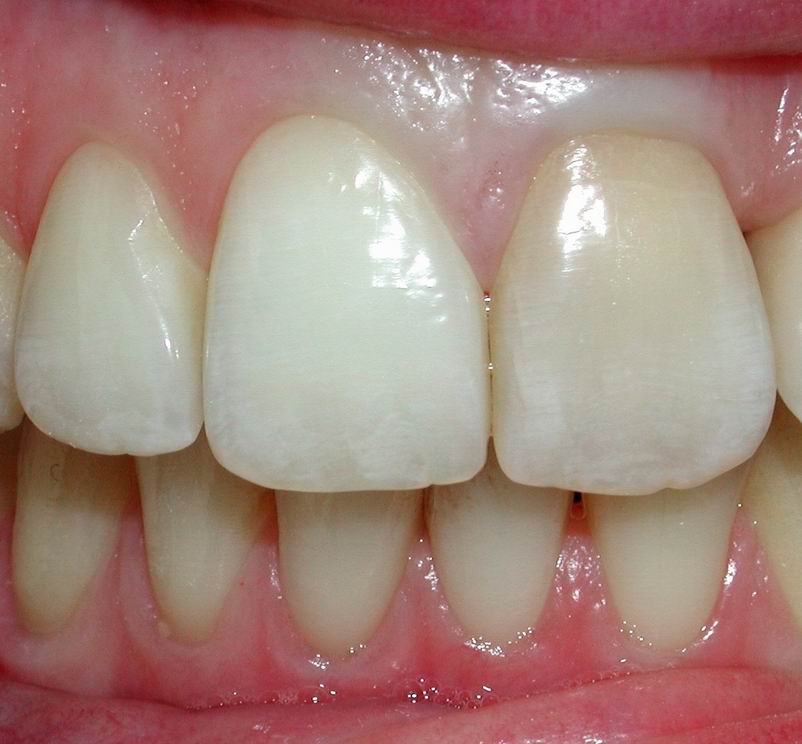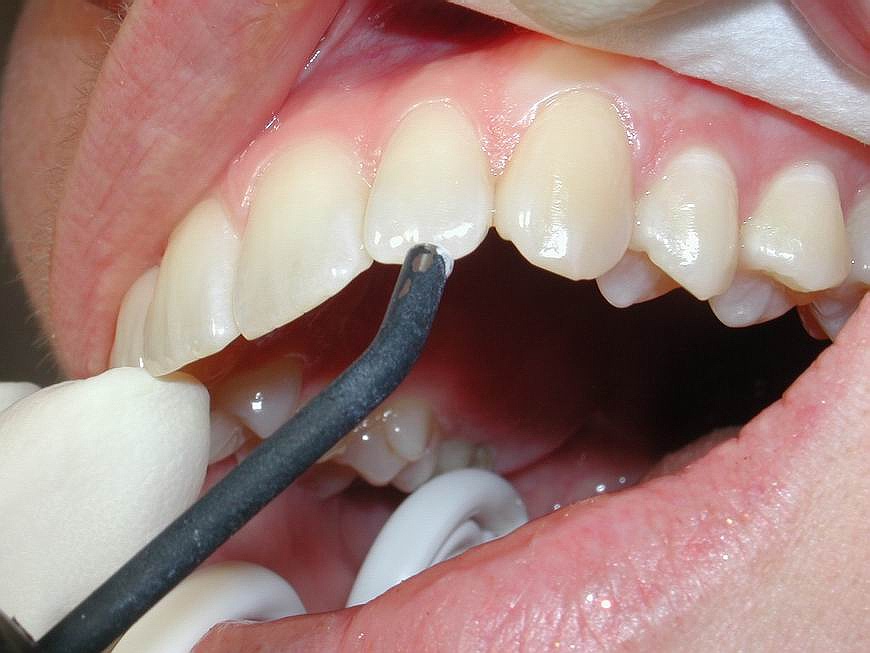Necrosis - Diagnosis






The pulp in a tooth is diagnosed as being necrotic when there is no vital tissue in the pulp chamber and the root canal(s). Sensibility tests of a necrotic tooth yield negative results. However, a negative sensibility test does not necessarily mean a necrotic tooth, because after trauma, for example, the intracanal nerves can be temporarily damaged and not respond to a particular stimulus.
Where a necrotic tooth has developed a periapical lesion, the diagnosis becomes apical periodontitis. Teeth with ischaemic necrosis are typically asymptomatic, unless, for example, occlusal interference is causing periapical tenderness. Intact teeth with pulp necrosis and without a periapical lesion are deemed to be sterile. However, necrosis is often a brief stage between pulpitis and apical periodontitis, and then it is probable that the root canal is infected.
Necrosis (and where the root canal is infected) always requires endodontic treatment, however, it is important to identify cases with post-traumatic "false, temporary necrosis", when the tooth is actually vital but nerve activation does not function.